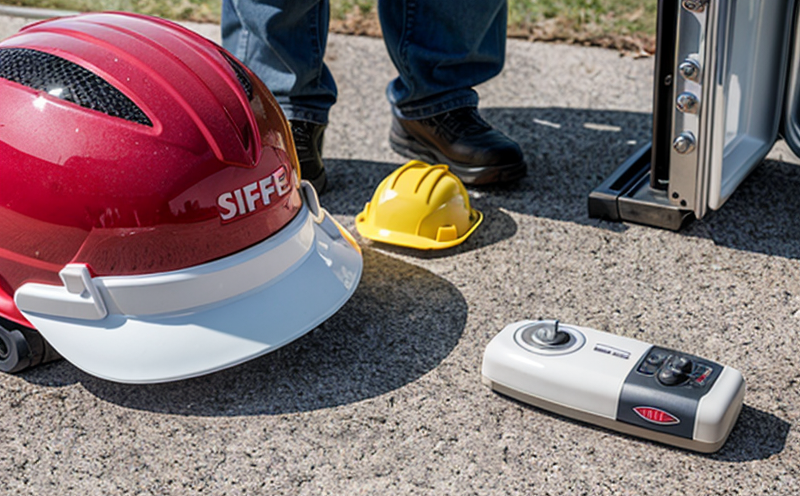ISO 18818 Lifeboat Engine Performance Testing
The ISO 18818 standard defines the performance requirements and testing procedures for lifeboat engines to ensure they meet the stringent safety standards required in maritime environments. This service is crucial for quality managers, compliance officers, R&D engineers, and procurement teams involved with marine and ship equipment.
Lifeboats are designed to save lives in emergency situations; therefore, their engines must be reliable and capable of operation under extreme conditions. The ISO 18818 lifeboat engine performance testing ensures that the engines can function effectively even in adverse weather conditions such as high winds, heavy seas, and cold temperatures.
The test parameters include a series of operational checks to simulate real-world scenarios. These tests are conducted on a variety of engines used in different types of lifeboats, from small inflatable boats to larger rigid-hull craft. The testing process involves multiple stages, each designed to assess specific aspects of engine performance:
- Idle Stability: Ensuring the engine can maintain idle speed and stability under various conditions.
- Speed Performance: Testing how well the engine achieves and maintains its rated speed within specified parameters.
- Load Capability: Evaluating the engine's ability to handle increased loads, simulating real-world situations where additional weight might be present.
- Fuel Consumption: Measuring fuel efficiency under controlled conditions to ensure compliance with environmental regulations.
For accurate testing, specimens are prepared by calibrating the engines according to manufacturer specifications. Testing is conducted using specialized equipment that simulates real-world operating environments, ensuring that all parameters are met. The results of these tests are meticulously recorded and reported in compliance with ISO 18818 standards.
The testing process also involves a series of acceptance criteria that the engines must meet to pass the test. These include:
- Engine must start within three attempts under all conditions.
- Idle speed and stability are maintained for at least 10 minutes without deviation.
- The engine can achieve its rated speed in not more than two minutes from idle.
- Fuel consumption does not exceed the specified limit.
Quality and Reliability Assurance
To ensure consistent quality and reliability, our laboratory employs rigorous testing procedures that adhere to international standards. Our team of experts uses advanced instrumentation to measure key performance indicators such as fuel efficiency, power output, and durability.
- Calibration: All equipment is regularly calibrated to ensure precise measurements.
- Data Logging: Continuous data logging during testing ensures accurate results.
- Repeatability: Multiple tests are conducted under identical conditions to verify consistent results.
We also offer comprehensive quality assurance programs that include:
- Detailed reports on each test run, including recommendations for improvements where necessary.
- Training sessions for clients' personnel on best practices and troubleshooting techniques.
- Regular maintenance schedules to keep testing equipment in optimal condition.
Environmental and Sustainability Contributions
The ISO 18818 standard is not only focused on safety but also on environmental sustainability. By ensuring that lifeboat engines meet strict performance criteria, this testing contributes to reducing fuel consumption and emissions in maritime environments.
The tests conducted under this standard help reduce the carbon footprint of marine operations by:
- Identifying inefficiencies early in the development process.
- Promoting the use of more efficient engines that meet international environmental standards.
- Encouraging the adoption of sustainable practices among manufacturers and operators.
Use Cases and Application Examples
| Use Case | Description |
|---|---|
| Regulatory Compliance | Ensures that lifeboat engines meet international safety standards, avoiding penalties and fines. |
| New Product Development | Aids in the design process by identifying potential issues early on, leading to more robust products. |
| Quality Control | Provides a consistent method for evaluating engine performance across different batches or models. |
| Operational Readiness | Ensures that engines are ready for use in emergency situations, enhancing overall safety on board ships. |





